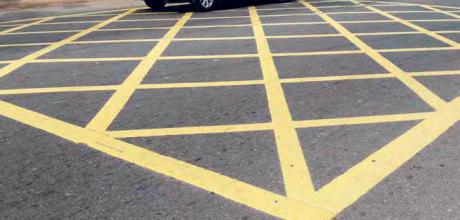Road traffic laws may be enforced by local councils
Despite there being a limited number of police officers in towns and cities across England and Wales dealing with minor road traffic contraventions, new legislation being implemented, namely Civil Enforcement of Road Traffic Contraventions (Approved Devices, Charging Guidelines and General Provisions) (England) Regulations 2022, provides that local councils will have the power to enforce traffic laws, previously the reserve of the Police.
LegalEYE
Boris Johnson sanctioned the scheme in a bid to reduce traffic and encourage people to cycle and walk, in London. It is estimated that around 300 local councils can apply to the government, by 31 May 2022, to empower them to impose penalties for moving traffic offences, dolling out tickets for a list of minor contraventions, including:
- Stopping in a yellow box junction
- Driving the wrong way down a one-way road
- Driving within bus lanes and cycle lanes
- Making illegal turns
Traffic cameras will be used to spot drivers falling foul of the law, and, as with other offences, the equipment used must be type approved and therefore certified by the Secretary of State as one which meets requirements specified in Schedule 1 of the provision. Penalty charges can only be enforced where there is evidence of contravention recorded on a type-approved device, or by information given by a civil enforcement officer as to conduct observed by that officer. Whilst some road traffic contraventions will ultimately result in a court hearing, no criminal proceedings may be instituted, and no fixed penalty notices may be issued, in respect of conduct constituting a parking contravention, except if it relates to a pedestrian crossing.
Notably, circumstances in which notification of a penalty charge for a parking contravention on a road in a civil enforcement area may be given otherwise than the current practise of fixing a notice to the vehicle, include circumstances where the relevant vehicle is stationary on:
- a a bus lane
- b a bus stop clearway or bus stand clearway
- c a carriageway outside a school entrance which is marked in accordance with the regulations
- d a red route
- e a mandatory cycle lane which is additionally marked
Local councils will also, worryingly, have powers to immobilise vehicles in contravention of traffic laws, but, in the majority of cases, fines will be imposed. The maximum penalty imposed for a single contravention will be £70, however councils can increase fines where the penalty charge is not paid within the prescribed time frame.
The scheme, already in force in London, is due to be rolled out elsewhere and drivers should take note to be extremely cautious as research found councils received in the region of £8 million pounds last year alone from drivers using bus lanes. There has been some reticence on the part of some organisations who have warned that councils may be over-enthusiastic in applying the new powers to the detriment of thousands of motorists. Should anyone wish to contest matters surrounding these new powers, there is a process of appeal, which it seems is likely to keep local councils extremely busy.


